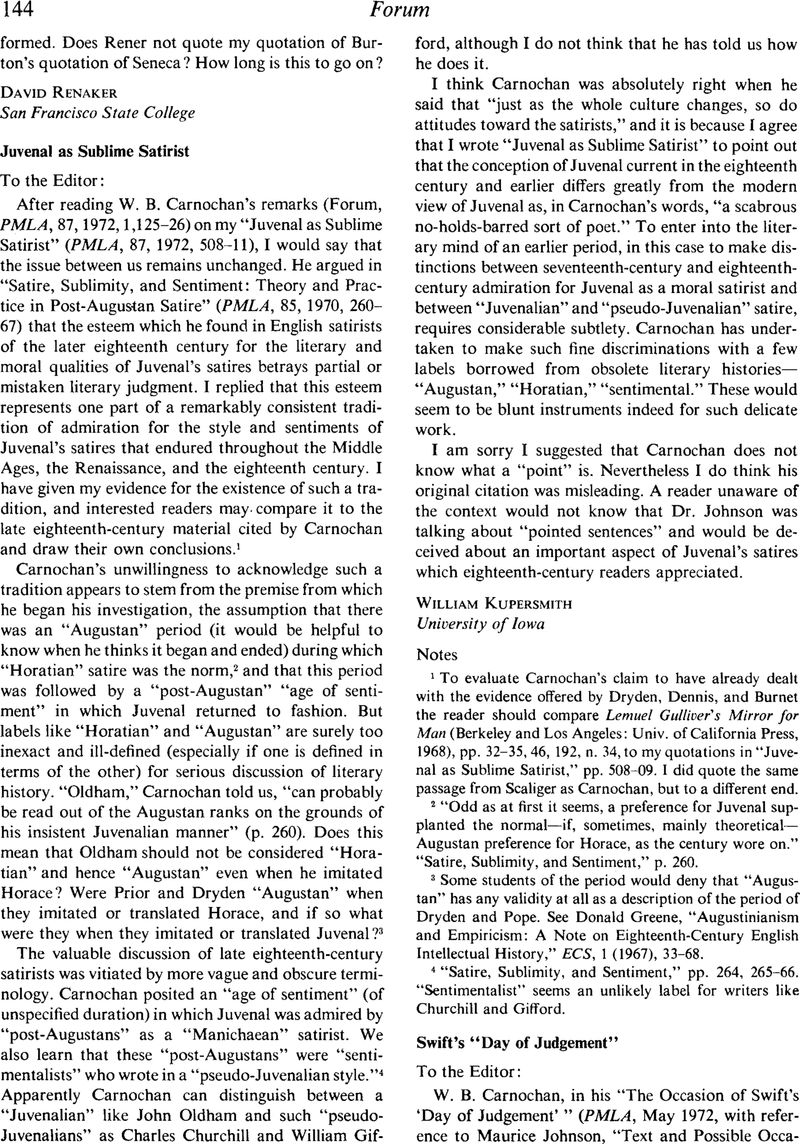No CrossRef data available.
Article contents
Juvenal as Sublime Satirist
Published online by Cambridge University Press: 01 December 2020
Abstract

- Type
- Forum
- Information
- Copyright
- Copyright © Modern Language Association of America, 1973
References
1 To evaluate Carnochan's claim to have already dealt with the evidence offered by Dryden, Dennis, and Burnet the reader should compare Lemuel Gulliver's Mirror for Man (Berkeley and Los Angeles: Univ. of California Press, 1968), pp. 32–35, 46, 192, n. 34, to my quotations in “Juvenal as Sublime Satirist,” pp. 508–09. I did quote the same passage from Scaliger as Carnochan, but to a different end.
2 “Odd as at first it seems, a preference for Juvenal supplanted the normal—if, sometimes, mainly theoretical—Augustan preference for Horace, as the century wore on.” “Satire, Sublimity, and Sentiment,” p. 260.
3 Some students of the period would deny that “Augustan” has any validity at all as a description of the period of Dryden and Pope. See Donald Greene, “Augustinianism and Empiricism: A Note on Eighteenth-Century English Intellectual History,” ECS, 1 (1967), 33–68.
4 “Satire, Sublimity, and Sentiment,” pp. 264, 265–66. “Sentimentalist” seems an unlikely label for writers like Churchill and Gifford.




